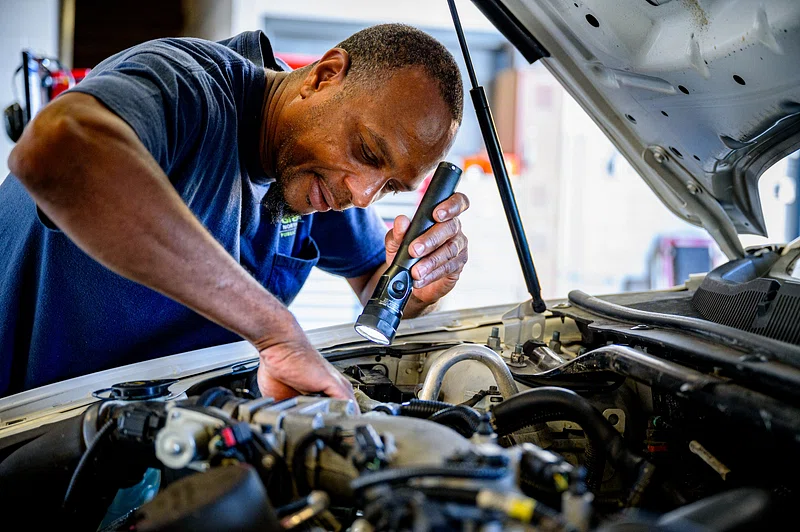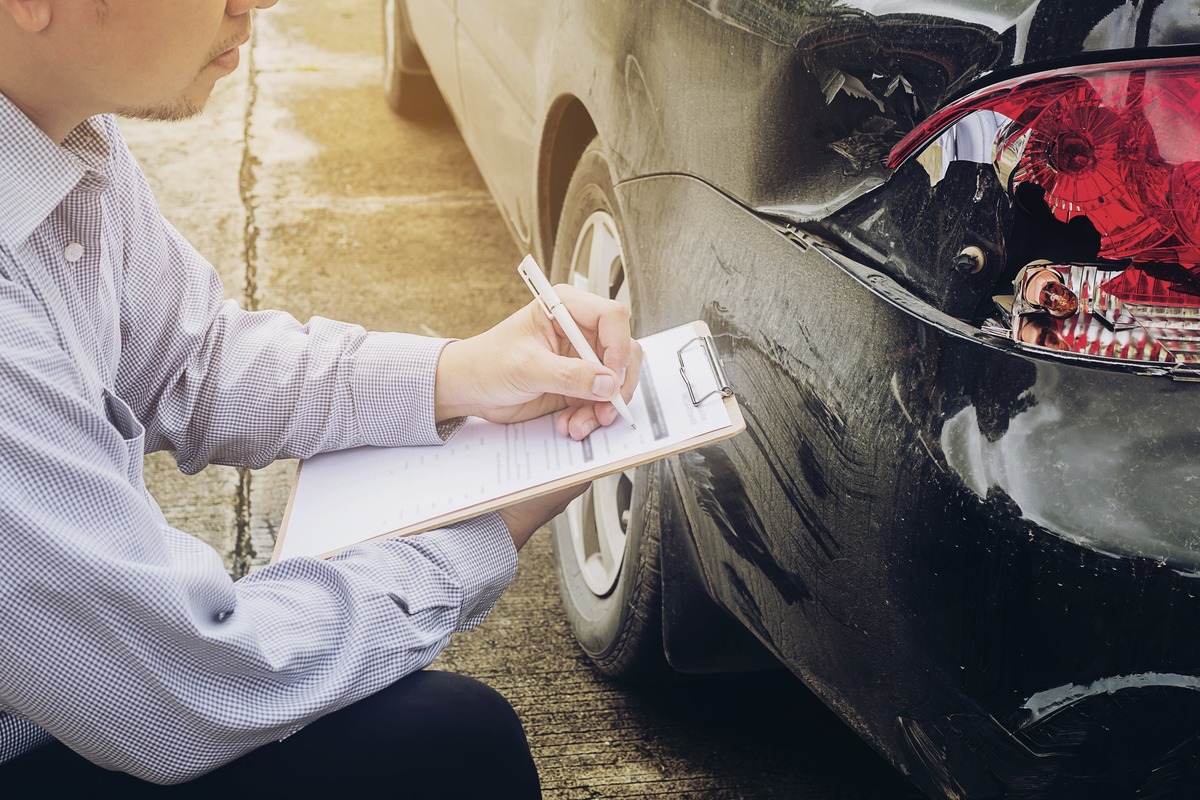How to Ensure Your Car Needs Service: A Complete Guide?
Maintaining your car’s health is crucial for ensuring it runs smoothly, safely, and efficiently. Regular servicing and timely repairs can extend the life of your vehicle, improve its performance, and even prevent costly breakdowns.
Auto Inc offers reliable car servicing and high-quality parts in Tanzania. With expert technicians and a focus on customer satisfaction, they provide comprehensive vehicle maintenance, repairs, and genuine spare parts. Trust Auto Inc for keeping your car in optimal condition on Tanzanian roads.
However, many car owners often overlook signs that indicate their vehicle needs servicing. In this article, we’ll explore how to ensure your car needs service by understanding the key indicators that suggest it’s time to visit the mechanic.
1. Unusual Noises
One of the most common signs that your car needs service is the presence of unusual noises. Different types of sounds can indicate specific issues in your vehicle. Pay attention to any strange or out-of-the-ordinary noises, as they often signal underlying problems.
Grinding or squealing when braking: If you hear a squealing or grinding noise when applying the brakes, it’s time to inspect your brake pads. Worn-out brake pads can severely reduce braking efficiency, leading to dangerous situations on the road.
Clunking sounds when turning: A clunking sound while turning the wheel may suggest problems with the suspension, steering components, or even the CV joints. A mechanic can identify the source of the noise and recommend appropriate repairs.
Rattling noises from the engine: If you hear a rattling sound coming from the engine, it may be an indication of loose or damaged parts, such as heat shields, belts, or a failing timing chain. Ignoring such noises could lead to more severe engine damage.
2. Warning Lights on the Dashboard
Modern vehicles are equipped with an array of sensors and warning lights that alert drivers to potential issues. If you notice that any warning lights on your dashboard are illuminated, it’s important to pay attention and take action immediately. Some of the most common warning lights include:
Check Engine Light (CEL): This is one of the most common dashboard lights. The check engine light can indicate various issues, including problems with the engine, transmission, exhaust system, or other critical components. It’s best to visit a mechanic to perform a diagnostic test and pinpoint the exact cause of the problem.
Oil Pressure Warning Light: If the oil pressure light comes on, it indicates that your car may be low on oil or there may be a problem with the oil circulation system. Driving with low oil pressure can cause severe engine damage, so it’s essential to address this issue immediately.
Battery Warning Light: The battery light indicates a problem with the vehicle’s charging system. If this light is on, your alternator or battery could be failing, which can result in your car losing power and breaking down.
ABS Warning Light: The ABS (Anti-lock Braking System) warning light means there’s an issue with the vehicle’s braking system. While the car may still be able to stop, the ABS feature might not be functioning properly, which could compromise safety.
Car Servicing in Tanzania with Auto Inc is an excellent choice for vehicle owners seeking quality and reliability. With a team of skilled professionals and a commitment to using genuine parts, Auto Inc ensures your car runs smoothly, enhancing both performance and longevity on Tanzanian roads.
3. Poor Fuel Efficiency
If you’ve noticed a significant decrease in your car’s fuel efficiency, it may be time for a service. Several factors can contribute to reduced fuel efficiency, including:
Worn-out air filters: Air filters ensure that your engine receives clean air for combustion. When they get clogged, the engine works harder, leading to reduced fuel economy. Replacing air filters is an inexpensive service that can improve fuel efficiency.
Faulty fuel injectors: Fuel injectors that are dirty or malfunctioning can prevent the proper distribution of fuel, reducing your car’s fuel efficiency. If you suspect this issue, ask your mechanic to clean or replace the injectors.
Tire pressure: Low tire pressure increases rolling resistance, making the engine work harder and burning more fuel. Check your tire pressure regularly and ensure they are properly inflated to the manufacturer’s recommended levels.
Spark plug issues: Worn-out spark plugs can cause misfires and reduce fuel efficiency. If your car is consuming more fuel than usual, it might be time to replace the spark plugs.
4. Vibrations While Driving
Unexplained vibrations while driving can be a sign of several potential issues with your car. Here are a few things to consider:
Unbalanced tires: If you feel vibrations in the steering wheel or throughout the car, it could be due to unbalanced tires. This can result in uneven tire wear and affect the overall handling of the vehicle.
Suspension issues: If the vibrations occur when driving over bumps or rough roads, it could be a sign that there’s an issue with the suspension components, such as the shocks, struts, or bushings. Having your suspension system inspected can help prevent further damage.
Wheel alignment problems: Poor wheel alignment can cause the car to vibrate, especially at higher speeds. Misalignment often occurs due to hitting curbs or potholes and can affect your car’s handling, steering, and tire life.
5. Overheating Engine
An overheating engine is one of the most serious signs that your car needs immediate attention. If your engine temperature gauge is reading too high or the engine begins to overheat, it’s essential to pull over and allow the engine to cool down before inspecting further.
Coolant leaks: If your car’s coolant levels are consistently low, it could indicate a leak in the cooling system. Leaking coolant can prevent the engine from staying cool, which can lead to engine failure.
Faulty thermostat: A malfunctioning thermostat may cause the engine to overheat, as it controls the flow of coolant through the engine. Replacing the thermostat can resolve this issue and prevent further damage.
Radiator problems: The radiator plays a vital role in regulating the engine temperature. If the radiator is clogged or damaged, it can result in overheating. A professional inspection is necessary to check for any issues with the radiator and cooling system.
6. Exhaust Smoke or Fumes
Excessive smoke or fumes from the exhaust pipe is a clear indication that something is wrong with your vehicle. The type and color of the smoke can provide valuable insight into the issue:
Blue smoke: Blue smoke from the exhaust may indicate that the engine is burning oil. This could be due to worn piston rings, valve seals, or other internal engine issues. If you notice blue smoke, it’s essential to get your engine checked immediately.
White smoke: White smoke may suggest coolant is leaking into the engine, possibly due to a blown head gasket. This is a serious issue that requires immediate attention to avoid further damage to the engine.
Black smoke: Black smoke from the exhaust indicates that your engine is burning too much fuel, which could be due to a clogged air filter, malfunctioning fuel injectors, or a bad sensor. Addressing the root cause will improve your car’s efficiency.
7. Frequent or Unusual Brake Behavior
If you experience frequent or unusual brake behavior, such as a soft or spongy brake pedal, grinding noises when braking, or a vibrating steering wheel, it’s essential to have your braking system inspected immediately. The brake pads, discs, and fluid should all be checked to ensure they are functioning correctly. A malfunctioning brake system can lead to accidents or even total brake failure, making this an issue that should never be ignored.
8. Fluid Leaks
Car fluids play a crucial role in the performance of various systems within the vehicle. If you notice puddles of fluid beneath your car, it’s time to investigate further. Common fluid leaks include:
Oil leaks: Oil leaks can occur around the engine and lead to engine damage if left unchecked. If you notice oil spots on the ground, check the oil level and have your engine inspected.
Transmission fluid leaks: Transmission fluid leaks can affect the car’s ability to shift gears properly. If you notice red or brown fluid beneath your vehicle, have the transmission system checked.
Brake fluid leaks: Brake fluid leaks can cause brake failure, so if you notice any brake fluid leaks, it’s critical to address them immediately to maintain the safety of your vehicle.
9. Car’s Age and Mileage
Lastly, the age and mileage of your vehicle play a significant role in determining when it’s time for servicing. As cars age, certain parts naturally wear down and may require replacement or repair. If your vehicle has high mileage, regular servicing becomes even more important to prevent issues from escalating.
Scheduled Maintenance: Car manufacturers provide a maintenance schedule that outlines when specific services should be performed, such as oil changes, tire rotations, brake checks, and more. Follow this schedule to keep your vehicle running in optimal condition.
Conclusion
Ensuring that your car needs service is about paying attention to its performance, sounds, smells, and behavior. By understanding the signs that indicate your vehicle requires attention, you can prevent minor issues from turning into expensive repairs. Whether it’s unusual noises, dashboard warning lights, poor fuel efficiency, or fluid leaks, timely maintenance can extend the life of your car, improve its safety, and enhance its overall performance. Always trust a professional mechanic for diagnostics and repairs to keep your car running smoothly.














Post Comment